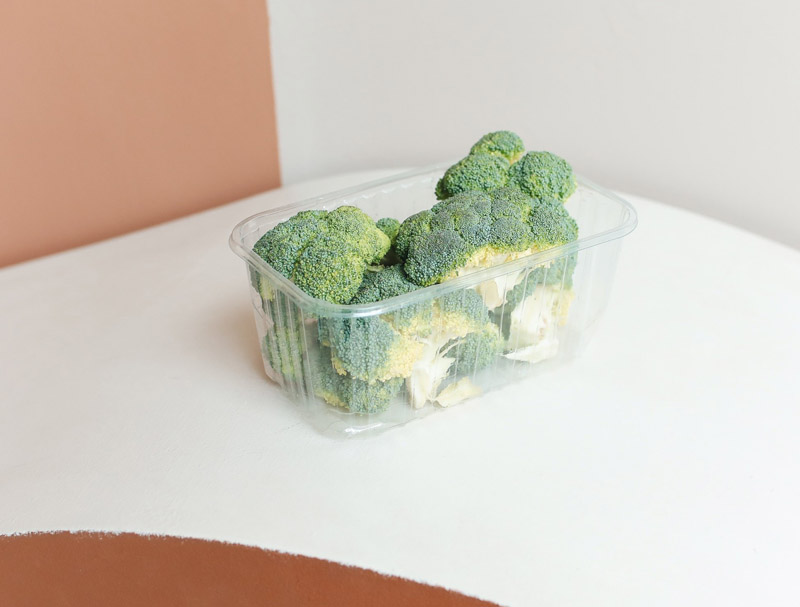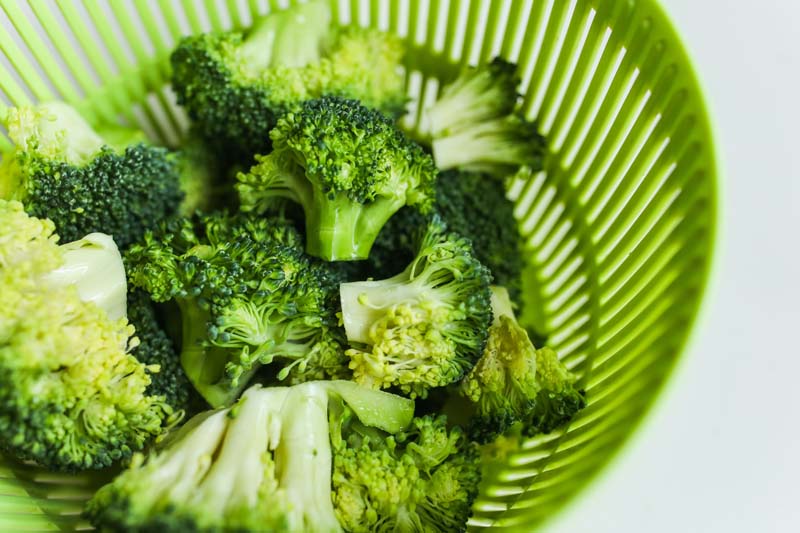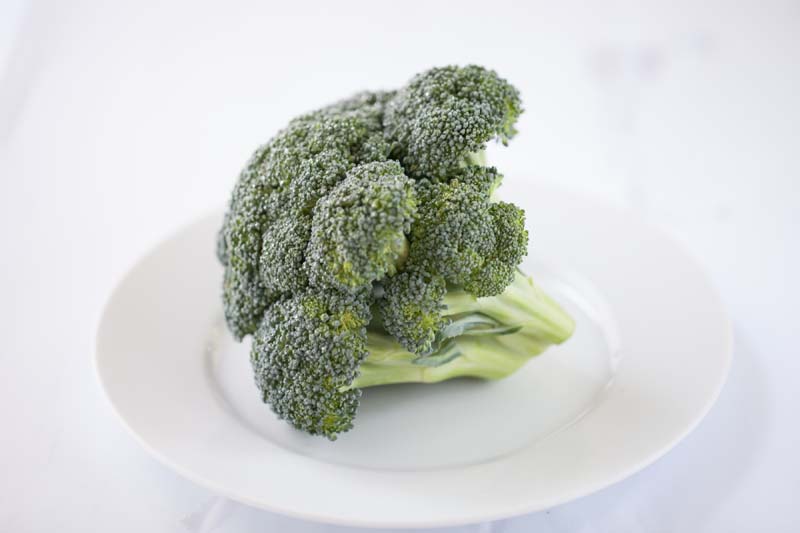Table of Contents
Composting has long been recognized as a sustainable and environmentally friendly method to manage organic waste and create nutrient-rich soil amendments. As we strive to reduce our ecological footprint and promote sustainable living, it’s essential to understand the intricacies of composting various materials, including kitchen scraps. One such vegetable that often finds its way into our waste bins is broccoli. As a cruciferous vegetable, it is not only nutritious but also versatile in its culinary uses. However, when it comes to composting, many people wonder, “Can you compost broccoli?”
Can you compost broccoli?
The answer is yes, broccoli can be composted. This nutrient-dense vegetable is a valuable addition to your compost pile, providing several benefits that contribute to the composting process and help reduce the environmental impact of organic waste.
Factors Contributing to Broccoli’s Compostability
Broccoli is primarily composed of water, making it a quick decomposer. Its high moisture content allows the microorganisms present in compost to break it down efficiently, speeding up the overall composting process. Additionally, broccoli is a rich source of nitrogen, an essential nutrient required for the growth and reproduction of microorganisms within the compost. This nitrogen content helps create a balanced carbon-to-nitrogen ratio in your compost pile, promoting effective decomposition and resulting in high-quality compost.
Benefits of Composting Broccoli
Enhances Compost Quality: Broccoli’s high nitrogen content helps create a balanced carbon-to-nitrogen ratio in your compost pile, which is crucial for effective decomposition. By adding broccoli to your compost, you can improve the overall quality and nutrient content of the finished compost.
Reduces Landfill Waste: Composting broccoli, along with other kitchen scraps, helps divert organic waste from landfills. This reduction in waste volume can alleviate the pressure on landfills and contribute to a more sustainable waste management system.
Supports Soil Health: The nutrient-rich compost produced by incorporating broccoli and other organic materials can enhance soil health and fertility, promoting healthy plant growth and increased crop yields. This can benefit home gardeners and commercial farmers alike.
Reduces Greenhouse Gas Emissions: Decomposing organic matter in landfills produces methane, a potent greenhouse gas that contributes to climate change. By composting broccoli and other organic waste, you can help reduce methane emissions and minimize your impact on the environment.
While composting broccoli offers numerous benefits, there are some potential drawbacks and challenges associated with the process. However, with the right knowledge and techniques, these challenges can be mitigated or overcome to ensure successful composting.
Potential Drawbacks and Challenges
Odor: Like other cruciferous vegetables, broccoli contains sulfur compounds that can produce a strong, unpleasant odor during decomposition. This smell can attract pests and make the composting process less enjoyable.
Solution: To minimize odor, regularly turn and aerate your compost pile to promote aerobic decomposition. Additionally, you can add more carbon-rich materials, such as dried leaves or shredded newspaper, to help absorb odors and maintain a balanced carbon-to-nitrogen ratio.
Pests: The smell of decomposing broccoli can attract rodents and other pests to your compost pile.
Solution: Use a rodent-proof compost bin with a secure lid to deter pests. Burying the broccoli scraps deeper in the compost pile or covering them with carbon-rich materials can also help mask the smell and reduce the risk of attracting pests.

Specific Composting Process for Broccoli
- Collect broccoli scraps: Save your leftover broccoli stalks, leaves, and florets, as well as any spoiled or unused portions, for composting.
- Chop or break apart the scraps: Cut the broccoli into smaller pieces to increase the surface area and speed up decomposition. This step also helps release the moisture content, which aids in the composting process.
- Add to compost pile: Add the chopped broccoli scraps to your compost pile or bin, layering them with carbon-rich materials such as dried leaves, straw, or shredded newspaper. This helps maintain a balanced carbon-to-nitrogen ratio and promotes effective decomposition.
- Turn and aerate regularly: Regularly turning your compost pile ensures proper aeration and promotes aerobic decomposition, reducing odors and the risk of pests. Aim to turn your compost pile once a week or more, depending on the specific needs of your compost.
- Monitor moisture and temperature: A well-functioning compost pile should be moist but not soggy, and should maintain a temperature between 130-160°F (54-71°C) for optimal decomposition. Monitor these conditions and adjust your compost pile accordingly by adding more carbon-rich materials if it’s too wet or more water if it’s too dry.
- Compost maturity: Once your compost has reached a dark, crumbly texture with an earthy smell, it is ready to be used as a soil amendment in your garden or landscape.
Alternatives to Composting
While broccoli can be successfully composted, if you are unable to compost or prefer alternative methods, consider the following options:
Vermicomposting: This process involves using worms, usually red wigglers, to break down organic waste, including broccoli. Vermicomposting is an excellent alternative for those with limited space, as it can be done indoors or outdoors in small containers.
Feed animals: Some animals, such as chickens or rabbits, can consume broccoli scraps as part of their diet. Always check the specific dietary needs and restrictions of your animals before feeding them any kitchen scraps.
Community composting: Many communities have composting programs where you can drop off your kitchen scraps, including broccoli, for processing at a centralized facility. Check with your local government or waste management provider for information on community composting options in your area.
Common Myths and Misconceptions about Composting Broccoli
Myth 1: Broccoli takes too long to decompose.
Truth: While it’s true that woody stalks can take longer to decompose compared to leafy greens, chopping the broccoli into smaller pieces can significantly speed up the decomposition process. Its high water content also helps break down the vegetable more quickly.
Myth 2: Broccoli cannot be composted due to its sulfur content.
Truth: Although broccoli contains sulfur compounds that can produce a strong smell during decomposition, it is still a valuable addition to your compost pile. Proper aeration, layering with carbon-rich materials, and maintaining a balanced carbon-to-nitrogen ratio can help minimize odor and ensure successful composting.
Myth 3: Broccoli scraps will make compost too acidic.
Truth: While broccoli is slightly acidic, adding it to your compost pile in moderation should not have a significant impact on the overall pH of the finished compost. The key is to maintain a balanced mix of materials in your compost pile, including carbon-rich materials and other green waste.

Conclusion
Composting broccoli is a sustainable and environmentally friendly way to manage kitchen waste, contributing valuable nutrients to the composting process and reducing landfill waste. By understanding the factors that influence its compostability and debunking common myths, you can effectively integrate broccoli scraps into your composting practices. Encouraging responsible waste management not only benefits your garden but also supports a healthier planet for future generations.
